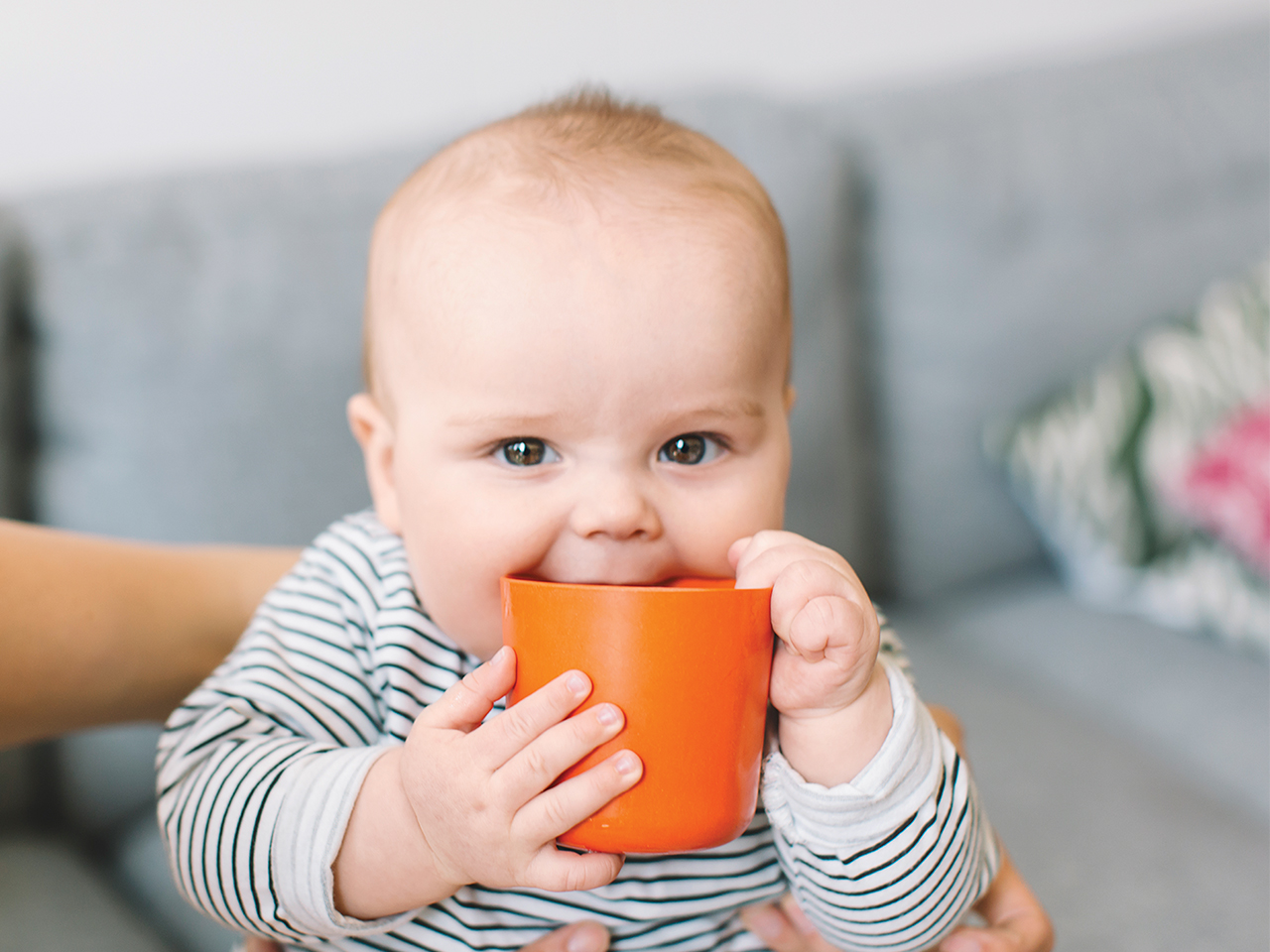If your baby is breastfed, you should not give your baby any liquids except mother’s milk until six months of age. If you feed your baby with adapted formula, you should offer your baby water between feedings.
In any case, from six months, along with the introduction of complementary foods, pediatricians recommend that the baby drink. If the child is breastfed from a bottle, he can be given water from a bottle that is familiar to him. When breastfeeding, your baby should be given water from a spoon or cup.
In hot weather, be sure to take liquids with you on a walk. The most convenient way is to use a sippy cup.
Drinking and water – find the right balance
Children about their weight receive much more food than adults, which is due to the high growth rate and metabolic rate. Still, a baby’s stomach volume is limited and they can consume about 1/6 of their weight per day. If part of the volume of milk is replaced by water, the baby will get the same amount of food, but the calories and nutrients in it will be much lower, and therefore the strength for growth and development, too. Water only takes up the volume without giving energy, but it displaces the same volume of caloric and nutritious milk. Children who receive both breast milk and water supplementation suck less, grow slower, and gain less weight.
Many mothers give their babies water from a bottle with a pacifier, and its sucking mechanism is very different from the mother’s breast. From the bottle, water drips by itself, and sucking is through a straw while breastfeeding milk must be milked out and make an effort. Naturally, children will refuse to labor and suckle the breast after digging the liquid on their own. At this time, caprices and bottle demands begin, leading to a rapid transition to mixed and completely artificial feeding. The mother’s milk becomes less and less, and that is where the history of breastfeeding ends. And the culprit is water, which is not needed.
Breast milk satiates the body and quenches thirst
The older generation with scant experience in breastfeeding, as well as panicky parents and those who read and learn little about breastfeeding, worry about a child suffering from thirst, comparing it to themselves. They believe that since water is needed by adults, it should automatically be given to children as well, but this is not the case in all cases. These arguments have no scientific support and no evidence base. Consequently, the arguments in favor of water. It’s hot outside and at home, we need to drink because of poor digestion. But breast milk is a unique product, it is both water and food. Unless we are talking about serious infections with vomiting and diarrhea, when a baby loses fluids quickly and powerfully, then milk is quite competitive with water and even bypasses it. In an adult who eats mostly dense and dry foods, water is needed to replenish salts and fluids. But for infants, all these functions
Breast milk itself takes care of these functions perfectly, and the balance of water and salt in it is better than in ordinary water. In addition, milk has antiviral and immune properties, from it all components are absorbed as fully as possible.
How to properly feed your baby
If your baby’s diet includes water and breast milk, it is better to feed him afterward The baby’s ventricle is small (up to 250 ml). If he is offered a breast after drinking, he will not suck as much milk as he needs.
If the baby is fed a mixed diet or artificial formula, he should be given water between feedings.
If the mother feeds the newborn strictly “by the hour”, that is, respects the regime of feeding, then you can give him extra water during the breaks. How much? Not much at all.
200 ml of H2O a day is the amount of water to give your baby. In case of illness, doctors recommend giving the baby liquid in the following proportion: 30 ml per 1 kg of weight. If your baby has disturbed sleep and is restless, offer him a little more than usual to drink.

